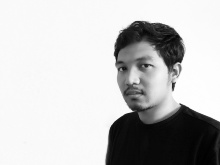Contact
Keplerstraße 11
70174 Stuttgart
Deutschland
Room: 10.23
Zuardin Akbar is an Indonesian computational designer who works as a Research Associate and PhD student at the Institute for Computational Design and Construction (ICD) at the University of Stuttgart, Germany. He holds a Master of Architecture degree from The Bartlett School of Architecture (BSA), University College London (UCL) and was awarded a Sir Peter Cook Award of the BSA for his master project on high-resolution architecture tectonic and machine learning. He also received a Bachelor of Engineering degree in Architecture from Universitas Gadjah Mada (UGM), Indonesia.
Before joining the ICD, Zuardin gained both academic and professional research experience in the area of computational design and robotic fabrication at the Department of Experimental and Digital Design at the University of Kassel, the Advanced Architecture Laboratory at Singapore University of Technology and Design as well as part of the research and development team at Ai-Build, a 3D printing start-up based in London. He was also involved in the development of several AEC software such as Opossum, Robot Component and Ai Sync.
His main research agenda is to develop an AI based computational design framework that intersects with material computation, automatic construction and material resourcefulness. Zuardin is currently involved in the new Computing in Architecture group at the ICD.


